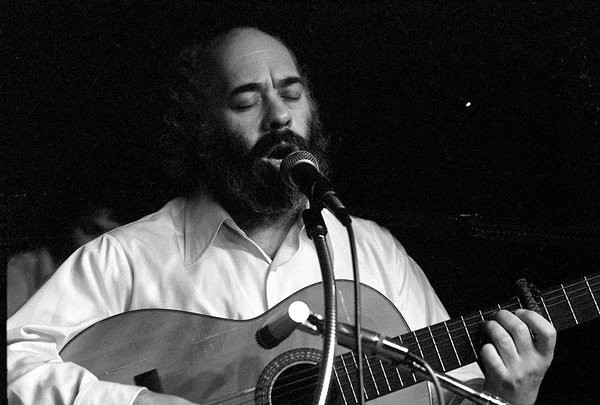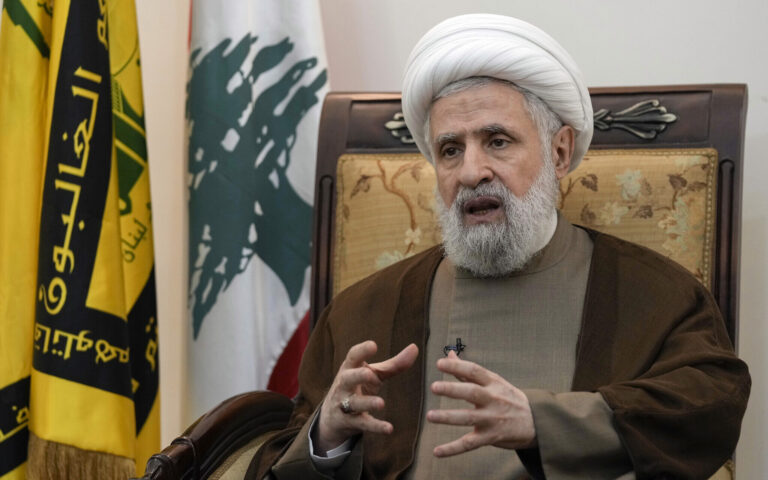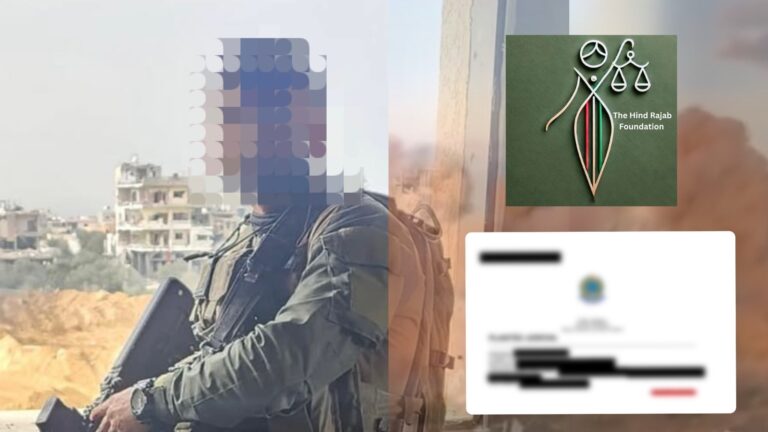The parsha begins by relating that Yaakov departed from Be’er Sheva and went to Charan. As the Torah doesn’t write unnecessary letters, why didn’t the Torah relay the information more succinctly by stating Vayeitzei Yaakov miBe’er Shava l’Charan, effectively eliminating one seemingly unnecessary word (vayeilech)?
The Medrash relates (Bereishis Rabbah 75:8) that prior to Yaakov’s departure, Rivkah blessed him (Tehillim 91:11) Ki malachav y’tzaveh lach – Hashem will command His angels for you (to protect you on your journey). Rav Chaim Volozhiner explains that the reason she specifically blessed him with this verse is because the last letters of the first four words in it spell yuhach, which the mystics teach is the name of the angel that is responsible for accompanying travelers along their journeys.
The Gemora in Eiruvin (64a) advises that when a person takes leave of his friend, he should do so by mentioning a d’var halacha – legal matter. Whenever one of the Vilna Gaon’s students had to go someplace, the Gaon would consistently share the same legal teaching: yachad v’rabim halacha k’rabim – when one Rabbi argues against a number of sages, the law is in accordance with the opinion of the majority (Berachos 37a). The reason that the Gaon specifically used this seemingly mundane and not particularly relevant legal ruling is because the first letter of each word spells yuhach, the name of the angel that he was indirectly blessing them should accompany them on their journeys!
With this introduction, we can now understand why the Torah didn’t relate Yaakov’s journey in a more succinct manner. The seemingly superfluous letters required to write vayeilech Charana instead of simply l’Charan are anything but unnecessary, as they may be rearranged to spell yuhach, which is the Torah’s way of hinting that his mother’s blessing was fulfilled and this angel indeed guarded him during his travels.
Vayomer Lavan lo yei’aseh kein bimkomeinu laseis hatz’irah lifnei hab’chirah (29:26)
A young yeshiva student was once in the house of the Tchebiner Rav. The Rav began to tell the young man about a certain girl whom the Rav believed would make a good match for him. At one point, while discussing the girl’s family and her numerous strengths, the boy asked if it would be possible to see a picture of the girl before rendering a final decision about meeting her. Overhearing the conversation from the kitchen, the Tchebiner Rebbetzin demonstrated her quick mind and remarkably sharp wit in rebuking the boy for his suggestion by calling out, “Lo yei’aseh kein bimkomeinu laseis hatzeirah lifnei habechirah!”
Literally, Lavan was defending his actions in switching his daughters under the chuppah against Yaakov’s accusation of deceit by maintaining that the local custom was that the younger daughter may only get married after her older sister has been married off. However, saying the verse with the Rebbetzin’s native Polish pronunciation (which is critical to the punch line), it can be reinterpreted to mean, “Our custom is that we don’t give a picture (the Hebrew word for picture, tzurah, was pronounced by her the same as the word tzeirah, referring to the younger daughter) before you meet the girl (the word for a young girl, bachurah, is pronounced similarly to the word bechirah, which refers to the older daughter).”
Vayizkor Elokim es Rochel vayishma Elokim vayiftach es rachmah (30:22)
The Torah tells us that “Elokim” remembered the barren Rochel, heard her prayers, and opened her womb. Rav Avrohom Yaakov Pam questions the usage of the word Elokim, which represents the Divine attribute of strict justice. Wouldn’t the name Hashem, which reflects His attribute of mercy, have been more appropriate?
Rav Pam explains that Rochel was barren and according to the laws of nature should not have had any children. However, on the day of her wedding that she had been looking forward to for seven long years, she learned that her father was replacing her with her older sister. In a moment of pure selflessness, she placed her sister’s consideration above her own and shared with her the simanim (signs) that Yaakov had given her to prevent any potential deceit by Lavan (Rashi 29:25). In doing so, she created such a tremendous merit for herself that Hashem’s sense of justice was compelled to change nature and reward her with a child which she otherwise would not have had.
Rav Elya Ber Wachtfogel points out that at the time of the incident, Rochel must have been sure that her actions would doom her never to marry Yaakov and bear children with him, but in Heaven, the reality was different. Had she gone ahead and married Yaakov, as was her right to do, she would have had a beautiful marriage, but unbeknownst to her, she was barren and would never have had any children. It was specifically through this act which appeared to destroy her chances of having the children that she so badly wanted that Rochel generated the merit which changed her fate and that of the Jewish people.
Similarly, Chazal teach that when Yitzchok was bound on top of the altar and his father was holding the knife and poised to slaughter him, he was overcome by fear to the point that his soul literally left him, and only a miracle brought him back to life. A little-known fact is that the Zohar HaKadosh teaches that Yitzchok was born with a female neshama which was incapable of reproducing. The soul which was returned to him, however, was a new one, that of a male.
The Shelah HaKadosh derives from here a beautiful lesson. As Avrohom went to the Akeidah, he thought that he was about to doom the future of the Jewish people by sacrificing his only Jewish offspring. He was willing to do so, as that was the test Hashem gave him, yet it seemed that he would have no Jewish descendants as a result.
In reality, Hashem knew that without the Akeidah, were Yitzchok to marry, he would be incapable of having children. The reason Rivkah wasn’t born until the time of the Akeidah was that until that time, Yitzchok was incapable of having children with her. The exact episode which seemed so clearly destined to eradicate the future of the Jews was instead the precise mechanism which enabled their continuation. Rochel and Yitzchok teach us that a person never loses out from doing a mitzvah.
Vatahar vateiled ben vatomer asaf Elokim es cherpasi vatikra es sh’mo Yosef (30:23-24)
When Rochel finally merited giving birth to a son, she commented, “Hashem has taken away my disgrace.” Rashi explains that until now, whenever Yaakov wanted to know who broke something in the house or who ate a certain food, she had nobody else to blame. Now she would no longer be disgraced because the action could be attributed to her son.
This is difficult to understand, as we find earlier that Rochel was inconsolable about her inability to have children, remarking to Yaakov (30:1) “Give me a son, and if not, it is as if I am dead.” Is the entire reason that she wanted a child so badly so that she could blame him for a broken plate or Yaakov’s favorite food that she inadvertently ate? Was there no more lofty intent in her desire for children?
Rav Yaakov Yosef Herman answers that Rochel’s primary desire and yearning for children was certainly rooted in elevated spiritual reasons. However, in expressing her thankfulness regarding this seemingly trivial point, she was teaching us an additional lesson. When it comes to a person’s obligation to feel and express his gratitude, he must be appreciative for every component of the good that he has received, even down to the smallest and most minor benefit.
Answers to the weekly Points to Ponder are now available!
To receive the full version with answers email the author at [email protected].
Parsha Points to Ponder (and sources which discuss them):
1) Were Yaakov’s 12 sons born after full-term pregnancies, and if not, why not? (Seder Olam 2, Derashos Chasam Sofer 7 Adar 2 5575)
2) After Yaakov explained to Rochel and Leah that Hashem had commanded him to leave Lavan’s house and return to the land of Canaan, they responded with their consent. They explained (31:14-16) that they had no hope of inheriting their father’s possessions together with their brothers and had been treated by their father as strangers when he sold them and held back their money, and added almost as an afterthought that they should go as Hashem had instructed. Why did they begin with rational justifications for their agreement to depart rather than focusing on the primary consideration – Hashem’s command to do so? (Darash Moshe)
3) When Lavan kissed his children and grandchildren to bid them farewell (31:55), what deleterious spiritual effect did this have on them? (Peninim Vol. 2)
4) Rashi writes (32:2) that there are different sets of angels which minister in the land of Israel and outside of it, and they may not cross the border from one side to the other. How was Yaakov, who had returned to the land of Israel, able to send angels (32:4) to his brother Eisav, who resided outside of the land of Israel? (Even Yisroel)
© 2010 by Oizer Alport.










